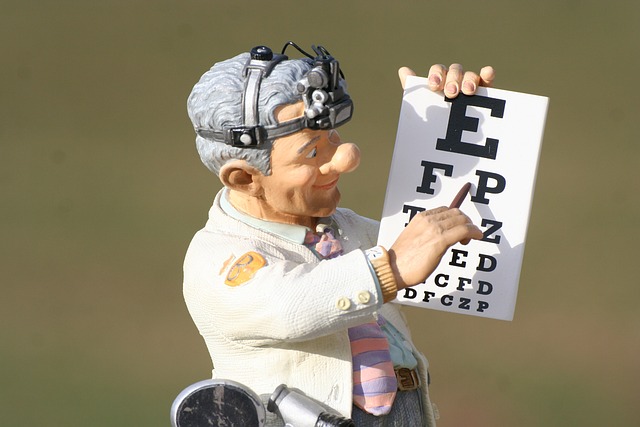You probably already know how dry eyes can affect your eye comfort and vision if you’re one of the millions of Americans who suffer from its irritating symptoms.
Dry eyes can cause blurry vision. It’s not difficult to understand what causes blurry vision. It occurs when one (or both) eyes have trouble seeing objects clearly. A person may have hazy vision at a particular distance or at all distances.
However, it’s crucial to understand how dry eye can impair your vision over time if you or someone you know is beginning to experience it.
Today, we’ll examine how dry eye syndrome may result in blurry vision, how it may result in irreversible vision loss, and what you can do to safeguard your eyes.
Table of Contents
What is Blurry Vision?
Blurry vision is more or less self-describing. It is simply the inability of one or both eyes to see objects clearly. It’s possible that you only have blurry vision at a specific distance, or that you have blurry vision at all distances.
The potential causes of your symptoms will determine how blurry your vision is. If you have dry eyes, you might notice blurriness everywhere.
What Are Dry Eyes?
When your natural tears aren’t working properly, dry eyes can result. You might not cry nearly enough, or your tears might dry up too quickly. Insufficient amounts of each necessary component in your tears can also cause dry eyes.
Tears are made up of more than just water; they also contain fatty oils, mucus, numerous proteins, and other healthy materials. Your tears are composed of three layers, collectively referred to as the tear film.
Outer Lipid Layer
Meibomian glands, which are found in your eyelids, produce the oily lipids that make up this layer. Their function is to lubricate the inner surface of your eyelids and stabilize the tear film, prevent excessive tear evaporation, and stabilize the tear film.
Middle Watery Layer
This layer, which is the watery part of your tears, accounts for about 95% of them. It is created by the lacrimal glands, contains nutrients and healthy compounds, and keeps your eyes moist.
Inner Mucus Layer
This layer’s main substance, mucin, helps to evenly distribute and maintain the stability of tears.
Dry Eye Can Cause Blurry Vision, But How?
Let’s dive right in: Yes, dry eye can cause blurry vision.
Before we discuss how dry eye can impair your vision, it’s crucial to comprehend the connection between your eye comfort and your tears.
The tear film, a microscopic layer of tears that covers your eyes, keeps them moist, safe, and comfortable. To function, the tear film needs three components: mucin, water, and oil. However, the stability of these components, particularly water and oil, is susceptible to a number of environmental factors.
Aqueous tear deficiency (AQT) and evaporative dry eye (EDE) are the two main types of dry eye. While EDE happens when there aren’t enough oils to seal in the remaining tear film and stop it from evaporating, AQT happens when your tear film is deficient in the water content it needs to hydrate and shield your eyes from dust and small particles.
You might experience a number of uncomfortable and irritable symptoms, regardless of the type of dry eye you have. Some issues that may cause blurry vision include:
Wateriness
It can be difficult to see until you find relief from wateriness, which is a typical sign of dry eyes.
In order to keep your eyes comfortable, certain glands in your eyes may produce more water if your tears evaporate too quickly. On the other hand, it might also happen if something is irritating your eyes, like an allergy or a small particle.
Eye Strain
Eye strain is a common eye condition that many people encounter. Even though it may not be a sign that you have dry eyes, eye strain can still result in several symptoms of dry eyes, including redness, wateriness, irritation, and, of course, blurry vision.
When you spend a lot of time performing a visually demanding task, such as reading, writing, or driving, eye strain frequently develops. You might begin to blink less frequently than usual because you’re spending so much time looking at something closely. Your tear film may subsequently evaporate, leading to dry eye symptoms and blurry vision.
Contact Lenses
With contact lenses, we can enjoy clear vision without having to worry about carrying around our glasses. To ensure comfortable and clear vision, contact lens wearers must take proper care of their lenses.
Long-term corneal damage and eye infections are risks that can rise with improper contact lens care. One of the main causes of EDE, meibomian gland dysfunction, has been known in some instances to be exacerbated by contact lenses.
If your contacts are dirty, it could cause discomfort for your eyes and cause vision problems. If you require assistance with contact lens cleaning, please contact one of our experts right away!
Dehydration
Yes, dry eyes and blurry vision can both result from dehydration.
Dehydration not only reduces tear production and affects eye comfort, but it also raises the possibility of headaches and migraines, which can impair vision. Staying hydrated can help you reduce your risk, particularly if you’re participating in sports or other high-intensity activities.
On average, we recommend drinking about 6 to 8 glasses of water a day.
Health Conditions
Vision blurring can be caused by a number of various medical conditions that can raise the risk of both AQT and EDE. Health conditions commonly associated with dry eye include:
- Sjogren’s syndrome
- Lupus
- Rheumatoid arthritis
- Thyroid deficiencies
- Vitamin A deficiency
- Allergies

The Difference Between Blurry Vision & Dry Eye
Although blurry vision is a typical sign of dry eyes, more serious eye health problems may be indicated by it.
Other issues that can cause blurry vision can include:
- Cataracts
- Glaucoma
- Age-related macular degeneration
- Diabetic eye disease
- Laser eye surgery complications
We advise scheduling an appointment with our staff to find out what might be causing your issues if you have blurry vision, even if you aren’t experiencing dry eyes.
When is Blurry Vision a Serious Problem?
Aside from eye issues, blurry vision may also indicate other, more severe health problems like a stroke. If these symptoms start to develop alongside your blurry vision, please reach out to an emergency room:
- Difficulty speaking
- Severe headaches
- Loss of muscle control on 1 side of your body
- Facial drooping
The medical conditions lupus, rheumatoid arthritis, and Sjorgren’s syndrome can also result in dry eyes and blurry vision. If you suddenly start developing blurry vision, this may be an emergency and you should contact a medical professional as soon as possible.
Should You Be Concerned?
Many methods exist to manage the symptoms of dry eye and offer relief. Dry eye is a common problem. Even if you experience blurry vision, visiting your eye doctor frequently and adhering to their recommendations is a great way to make sure your vision remains clear and comfortable.
If you don’t seek treatment for your dry eye symptoms, though, they might worsen over time. In order to prevent bacteria and other foreign objects from damaging your cornea and infecting your eyes, your tear film is an essential defense.
Corneal Damage
The iris and pupil are protected by the cornea, a clear, dome-shaped portion of the eye. Consider how your retina receives light from a window as it passes through.
If your dry eye symptoms get bad enough, your tear film might not be able to remove any debris that might end up on your cornea. These foreign objects, such as dust and dirt, can harm your cornea and leave scarring that may impair your vision permanently if there isn’t a tear film protecting it.
If you experience this kind of corneal damage, we might suggest surgery to help you regain your vision, such as a corneal transplant or PTK procedure.
Eye Infections
Even if you don’t have dry eye, you can get an eye infection, but your risk may be higher if your tear film is compromised.
Some of the most common eye infections you may risk developing when you have dry eye could include:
- Conjunctivitis (pink eye)
- Keratitis
- Blepharitis
- Styes
Following your dry eye treatment can help protect your eyes from infections, but you could also lower your risk by:
- washing your hands frequently
- Applying fresh towels and cloths to your face
- not trading personal care items or eye makeup.
- Frequently cleaning your contacts
- washing your pillowcases and bed sheets frequently.
Preventing Blurry Vision
Making an appointment with our staff is the best way to avoid the blurry vision that comes from dry eyes. However, you can avoid blurry vision by employing a few simple strategies that you can practice at home. Some of these tips can include:
- Limiting your digital device use
- Adding a humidifier in your room
- Staying away from smokey areas
- Wear sunglasses on sunny days
- Drinking plenty of water
- Getting 7 to 8 hours of sleep a night
What to Do If You Experience Blurry Vision
The best way to tell if you have dry eye or another condition is to visit an eye doctor if you have blurry vision for any length of time.
But you can try blinking fully and frequently for a few seconds. Increased blinking can temporarily improve your blurry vision because it re-spreads the tear film across the surface of the eyes. The best course of action, regardless of the underlying cause, is to seek professional advice as this is unlikely to resolve the issue.
Conclusion
Due to their effects on tear production and quality, a number of dry eye causes can quickly result in blurry vision. Irritated, tired, and itchy eyes are the direct result. Your eyes won’t be adequately lubricated if you are not producing sufficient tears, if your tears are of poor quality, or if they evaporate too quickly. It will be more difficult to concentrate and see clearly the longer these symptoms last.
Suggested articles:





